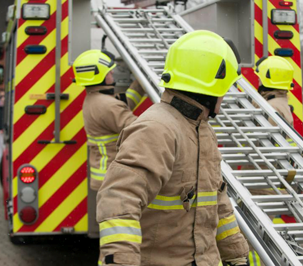Fire chiefs have been warned of uncertainty as officers try to make long-term financial plans amid “a perfect storm” of major funding changes.
Earlier today (Thursday 6 September) members of the East Sussex Fire Authority – the group responsible for overseeing fire service policy in Brighton and Hove as well as across the county – heard how uncertainty about the future of local government funding was hindering efforts to plan ahead.
Responding to a question on income forecasts – and associated cuts – in the authority’s medium-term financial plan, fire service treasurer and assistant director Duncan Savage spoke of several upcoming funding changes causing long-term uncertainty.
Mr Savage said: “I think it is worth putting a bit of context around this. What we have set out is our forward view for the next five years.
“It is fair to say we have some degree of confidence about next year as we are in the last year of a four-year funding settlement with the government. We hope and anticipate there will be no fundamental changes with that.
“However, after that period – for 2020-21 onwards – we are into the realm of something of a perfect storm.”
Mr Savage highlighted three major areas of uncertainty, including an upcoming comprehensive spending review which will see central government completely reassess its spending in 2019.
The continuing fair funding review – which is expected to see major changes to how the government splits money between different areas of the country – would also be likely to affect the fire authority, Mr Savage said.
He also highlighted the potential disruption of business rates changes, as the government moves to alter how they are collected and divided.
Fire authority members also heard how work is set to begin on a new Integrated Risk Management Plan (IRMP) in the autumn of 2019. The full plan – considered a major piece of work for any fire authority – is expected to include new studies on what resources the fire service will need to operate.
Meanwhile, fire authority chairman John Barnes (Conservative, Rother North West) cautioned that the current budget process remained at an early stage, saying that he expected the financial plan to be in an altered form when it is next reviewed in December.
He said: “The point I want to make is that we are at a very early stage of the budget process. We are obviously making a number of assumptions about ‘knowns’ but there are quite a lot of ‘unknowns’ as well, particularly around the Sussex Control Centre.
“This (report) is rather more tentative at this stage than in earlier years it had been.”

During the same meeting concerns were raised over what impact Brexit might have on the future of the fire service by East Sussex county councillor Carolyn Lambert (Liberal Democrat, Seaford South).
She asked what contingency planning was taking place for fire services nationally and within East Sussex.
In response, chief fire officer Dawn Whittaker said: “Over the last few months the National Fire Chiefs Council (NFCC) has had four separate sessions on assessing Brexit implications for emergency services and there have been discussions in collaboration with other emergency services, because some of the things are consistent.
“I’m not going to go into absolute detail, other than to say there are issues associated with national security (and) issues associated with procurement and supply that would have an impact or potentially have an impact.
“But there are an awful lot of assumptions based on the current 70 statements that the government has issued as well as a lot of work to do on a national level.”
East Sussex Fire and Rescue Service (ESFRS) had also been taking part in contingency planning – particularly around the movement of people and ports – with other local emergency services.
Members were told that further details about the potential impact to supply chains was considered “commercially sensitive” at this time.








